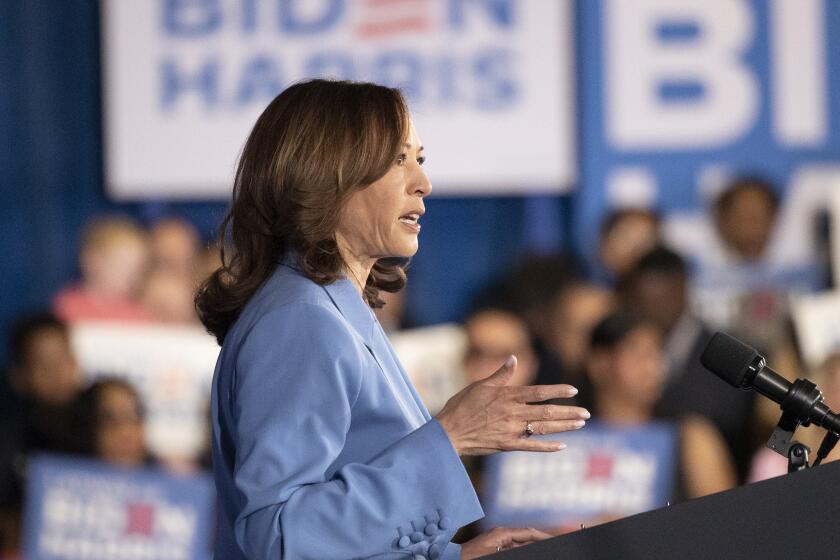Banks try to stem card debt
WASHINGTON -- — With defaults on credit card debt spiraling amid a global financial downturn, banks already reeling from the mortgage crisis are losing billions more from unpaid credit card bills.
Big banks have formed an unusual alliance with consumer advocates to urge the government to allow huge portions of credit card debt to be forgiven, a turnabout from recent years, when the banking industry lobbied strenuously to make it harder for consumers to erase their credit card debts in bankruptcy.
The pilot program -- which the banks hope will become permanent -- could involve as many as 50,000 people struggling with credit card debt. On an individual basis, the amount of debt to be forgiven would rise according to the severity of the borrower’s financial situation, up to a maximum of 40%.
“There’s obviously a financial benefit to the financial institutions to step up to the plate right now,” said Susan Keating, president and chief executive of the National Foundation for Credit Counseling, which has 108 member organizations around the country. “We absolutely support the proposal.”
In an increasingly tough economic climate, banks and other mortgage lenders have been agreeing to modify loans of homeowners to help them avoid foreclosure. Now, banks making credit card loans have reached a point where they can lose less by forgiving part of the debt than by seeing the consumer walk away entirely.
Credit cards -- now an integral part of American life and the economy -- appear to be the latest domino to fall in a financial crisis that started with subprime mortgages and continually takes new twists.
Credit card charge-offs, balances written off as unpaid, rose to 6.8% in August, up 48% from a year earlier, according to Moody’s Investors Service.
Americans are burdened with about $900 billion in credit card debt, according to the latest available Federal Reserve figures.
The proposal pitched to federal regulators by the Financial Services Roundtable, which represents more than 100 big banks and other financial companies, and the Consumer Federation of America would allow lenders to reduce the amount of credit card debt owed by deeply indebted consumers in a pilot program.
It recognizes that “there are some critical problems with credit card debt,” said Bert Ely, a banking industry consultant in Alexandria, Va. “We’re going to see more of these efforts to try to minimize the situation.”
Under the groups’ proposal to U.S. Comptroller of the Currency John Dugan, whose Treasury Department agency oversees national banks, a pilot project would allow big credit card companies to sharply reduce the amounts owed by consumers in over their heads who don’t qualify for the repayment plans now available.
Nearly all the biggest credit card banks have agreed to such a pilot program, in which lenders would forgive as much as 40% of the amount consumers owe, allowing them to pay back the remainder over time.
The program could reach as many as 50,000 borrowers, said Scott Talbott, senior vice president of the Financial Services Roundtable. Borrowers would have to be in a counseling program for their debt. The amount to be forgiven would depend on the borrower’s financial condition; those receiving close to the maximum forgiveness level would be nearing a personal bankruptcy filing.
And there would be a tax benefit. Borrowers would be able to defer payment of income taxes they owed on the forgiven part of the debt until after the remainder was paid off. The lenders could wait until then to book their losses on the forgiven debt.
“Both parties win,” Talbott said.
Current government rules don’t allow lenders to offer repayment plans that reduce the amount of principal owed and borrowers to repay the balance over several years. In credit card settlement cases in which the principal can be reduced, borrowers normally are required to pay off the remainder over months rather than years.
Kevin Mukri, a spokesman for the comptroller’s office, and Peter Garuccio, a spokesman for the American Bankers Assn., declined to comment.
More to Read
Inside the business of entertainment
The Wide Shot brings you news, analysis and insights on everything from streaming wars to production — and what it all means for the future.
You may occasionally receive promotional content from the Los Angeles Times.










